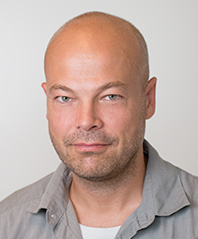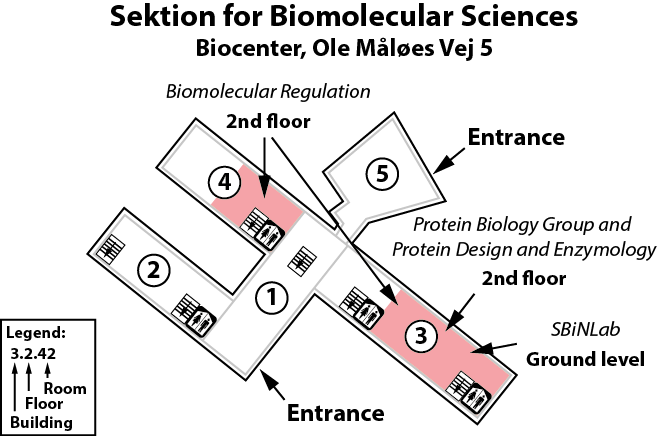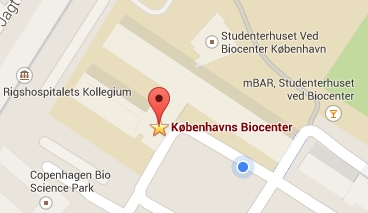Welcome to the Rasmus Hartmann-Petersen website
Here, you may find information about ongoing research projects, the research group, open positions and how to contact us.
If you are interested to learn more or join the lab, please contact Rasmus directly via e-mail or stop by my office to discuss project proposals with me. Read more about how to join the group on the Section for Biomolecular Sciences homepage on joining the labs.
Our research activity is primarily centered on intracellular protein degradation via the ubiquitin-proteasome pathway. The ubiquitin-proteasome system is highly conserved and is the major pathway for intracellular proteolysis in all eukaryotic cells. Accordingly, ubiquitin-dependent protein degradation plays a pivotal role in the turnover of key regulatory proteins involved in a series of cellular processes, including cell cycle control, signal transduction, and protein folding. For a number of years a focus area for us has been how abnormal or misfolded proteins are targeted for degradation. To this end, we use fission yeast and mammalian cells in tissue culture as model systems, combined with a series of genetic, biochemical and molecular cell biological methods. In addition, we collaborate closely with a number of other research groups both in Denmark and abroad.
The ubiquitin-proteasome system
Our research activity is primarily centred on intracellular protein degradation via the ubiquitin-proteasome pathway. The ubiquitin-proteasome system (link to Bookshelf) is highly conserved and is the major pathway for intracellular proteolysis in all eukaryotic cells. Accordingly, ubiquitin-dependent protein degradation plays a pivotal role in the turnover of key regulatory proteins involved in a series of cellular processes, including cell cycle control, signal transduction, DNA repair, vesicle transport and protein folding. Expectedly, malfunctions in this cellular system are connected with a variety of diseases such as cancer and viral infections as well as neurodegenerative diseases like Parkinson's disease and Alzheimer's syndrome. Also secretory proteins are, via the so-called ER-associated degradation (ERAD) pathway, targeted to the ubiquitin-proteasome system.
At the centre of ubiquitin-dependent degradation is the 26S proteasome, a huge protease complex composed of more than 30 different subunits. In addition to its core subunits, the 26S proteasome needs certain accessory proteins that equip the particle with specific functions. For instance some proteasome co-factors maintain degradation of unfolded cytoplasmic proteins, while others are involved in ERAD. Over the past years we have identified and characterized several new proteasome subunits and co-factors, including a proteasome-associated thioredoxin and certain co-chaperones.
Research tools & techniques
In our studies we utilise human tissue culture cells and the fission yeast Schizosaccharomyces pombe as model organisms. As the ubiquitin-proteasome system is remarkably well conserved we tend to use yeast for answering basic cell biological questions as this allows for swifter molecular biological manipulations without limiting the overall scope of the projects. However, when yeast cannot be utilised we use human cells in tissue culture.
We utilize a variety of genetic, biochemical and molecular biological techniques, including co-precipitation and Western blotting, yeast two-hybrid analyses, fluorescence microscopy, and various suppressor screens. For reviews which are focused on our research interests, please refer to the publications listed on this site.
Our lab is located on the 2nd floor, building 3 of the Copenhagen Biocenter (map), close to the centre of Copenhagen. It takes less than 1 hour to travel from Copenhagen's airport to our lab, by train or subway (from the airport to Nørreport station, a 20 minute journey, with trains every 10 minutes) and bus (bus 150S from Nørreport to the stop called "Fredrik Bajers Plads" in the intersection of Tagensvej and Nørre Allé, a 10 minute journey, with buses every 6-8 minutes). From there it is a few minutes walk.
Contact

Professor Rasmus Hartmann-Petersen
Section for Biomolecular Sciences
Kaj Ulrik Linderstrøm-Lang Centre for Protein Science
Ole Maaløes Vej 5, room 3-2-41
DK-2200 Copenhagen N
Email: rhpetersen_at_bio.ku.dk
Phone: +45 2694 1565
KU profile: Link



